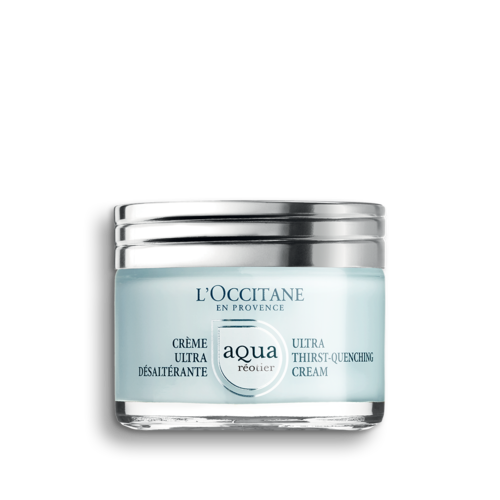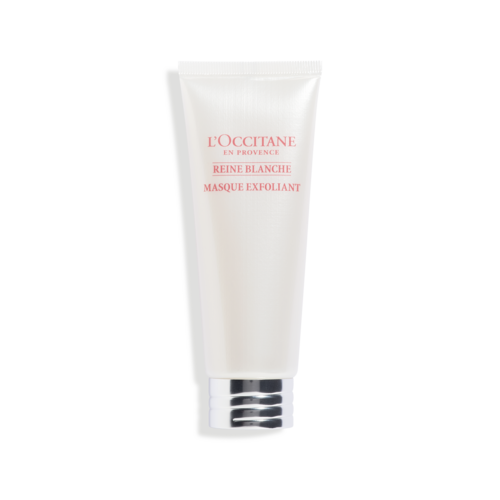Look Fresh and Radiant: A Guide to Choosing the Right Facial Exfoliation Product for Your Skin

Facial exfoliation is an essential step in skincare that helps keep the face clean and bright. However, not all exfoliating products suit every skin type, so it's important to understand your skin type and how to choose the right product. This article will help you understand the importance of exfoliation, how to select the right products, and tips to achieve the best results.
The Importance of Exfoliation in a Skincare Routine
Exfoliation is the process of removing dead skin cells from the skin's surface, which aids in the regeneration of new skin cells. This process is important because the accumulation of dead skin cells can clog pores, cause acne, and make skin appear dull. Regular exfoliation can help:
- Prevent Acne: By removing dead skin cells, exfoliation prevents clogged pores, which are often a major cause of acne.
- Enhance Absorption of Other Skincare Products: Clean skin without a layer of dead cells will absorb skincare products like serums and moisturizers more easily.
- Give Skin a Bright and Smooth Appearance: Exfoliation helps reveal new, fresher, and brighter skin.
With so many benefits, it is essential to include exfoliation as part of your skincare routine. However, it is important to remember that the frequency and type of exfoliation must be adjusted according to skin type.
Skin Type and Appropriate Exfoliating Products
Each skin type requires different care, including exfoliation. Here’s a guide to choosing the right exfoliating product based on your skin type:
1. Normal Skin
Normal skin generally has no specific issues, so you have more flexibility in choosing exfoliating products. Gentle scrubs or chemical exfoliators like glycolic acid can be good options. Use once or twice a week to maintain a smooth skin texture.
2. Dry Skin
Dry skin needs gentle exfoliation to avoid irritation. Avoid harsh scrubs and choose exfoliating products containing lactic acid or mandelic acid, which work more gently on the skin's surface. These products can help lift dead skin cells without stripping the skin's natural moisture.
Read Also: Sunscreen for Dry Skin
3. Oily and Acne-Prone Skin
For oily skin, exfoliation is an important step in controlling excess oil production. Salicylic acid-based exfoliating products are highly recommended as they can penetrate clogged pores and reduce acne. Avoid coarse scrub-based products as they may trigger irritation on acne-prone skin.
Read Also: Sunscreen for Oily Skin & Sunscreen for Acne-Prone Skin
4. Sensitive Skin
Sensitive skin must be very careful in choosing exfoliating products. Avoid physical exfoliators (scrubs), as they may damage the skin's protective layer. Choose chemical exfoliators with low concentrations, such as polyhydroxy acids (PHA), which work more gently and minimize the risk of irritation.
5. Combination Skin
Combination skin often has oily areas on the T-zone (forehead, nose, chin) and dry areas elsewhere. You might try exfoliating products that contain glycolic acid or a combination of AHA and BHA to meet the varying needs of each area of the face.
Read Also: Sunscreen for Combination Skin
Exfoliation Myths
There are many myths surrounding exfoliation that often lead to misunderstandings. Here are some common myths and the real facts:
1. The Rougher the Scrub, the Better
Many believe that a rough scrub will be more effective in cleansing the skin. In fact, a harsh scrub can damage the skin layer and cause irritation. Gentle exfoliating products, especially those based on chemical ingredients, are often more effective and safer.
2. Exfoliation Should Be Done Every Day
Daily exfoliation can cause over-exfoliation, meaning that too much skin is removed, resulting in irritation and sensitivity. Exfoliating 1-3 times a week is sufficient, depending on your skin type.
3. Exfoliation Isn’t Necessary for Dry Skin
Exfoliation is indeed essential for all skin types, including dry skin. However, the type of exfoliation chosen should be appropriate, such as using a gentle chemical exfoliator. Proper exfoliation can actually help dry skin become smoother and less dull.
4. All Exfoliating Products Are Suitable for Everyone
Not all exfoliating products are suitable for everyone. Your skin type and sensitivity determine the right exfoliating product. Understanding the ingredients and composition of products is key to choosing the appropriate one.
Tips and Tricks for Optimal Results
To get the best results from your exfoliation routine, here are some tips to follow:
1. Exfoliate at Night
Exfoliating at night allows the skin to recover without exposure to direct sunlight. Chemical exfoliators like AHA and BHA can make the skin more sensitive to sunlight, so it’s recommended to exfoliate in the evening and use sunscreen in the morning.
Read Also: Night Skincare Routine
2. Use a Moisturizer After Exfoliation
After exfoliating, it’s essential to maintain skin hydration by applying a moisturizer. The exfoliation process may remove the skin's natural oils, so a moisturizer can help keep the skin hydrated and healthy.
One recommended moisturizer from L’Occitane is the Aqua Reotier Thirst Quench Cream. This moisturizer is made from natural ingredients like Reotier and hyaluronic acid, designed to provide intense hydration and keep the skin radiant and soft all day long. You don’t need to worry about using this moisturizer as it has been proven suitable for all skin types.
3. Avoid Exfoliating on Irritated or Extremely Dry Skin
Exfoliating irritated or very dry skin can worsen the skin condition. If your skin is in a sensitive or irritated state, it’s best to avoid exfoliating and allow the skin time to heal first.
4. Choose Quality Exfoliating Products
Investing in quality exfoliating products can make a big difference. L'Occitane, for instance, offers skincare products with gentle yet effective natural ingredients, making them suitable for all skin types.
One recommended exfoliating product from L'Occitane is the Reine Blanche Exfoliating Mask. This mask is made from natural ingredients such as Jojoba Pearls for gentle exfoliation and Meadowsweet Flower extract for brightening, which together help reduce pore visibility, even out skin tone, and soften the skin.
5. Adjust Exfoliation According to Weather and Skin Condition
Your skin condition may change depending on the season or environment. For example, in summer, the skin may produce more oil and require more regular exfoliation. Conversely, in winter, the skin tends to be drier, so you may need to reduce the frequency of exfoliation to avoid irritation.
6. Perform a Patch Test First
Before using a new exfoliating product, do a patch test on a small area of skin, such as behind the ear or on the wrist. This can help you avoid unwanted reactions, especially if you have sensitive skin or allergies to certain ingredients.
Exfoliation is an essential part of skincare that helps keep the skin healthy, clean, and radiant. By understanding your skin type, choosing the right products, and exfoliating with suitable consistency, you can achieve optimal results. Remember that each skin type is unique, and your exfoliation needs may change over time or due to environmental conditions.
By following this guide, you will find it easier to determine the right exfoliating product for your needs. L’Occitane products, made from natural ingredients, can be an ideal choice for safe and effective exfoliation. Let’s take care of your skin and enjoy satisfying results from the right care!




